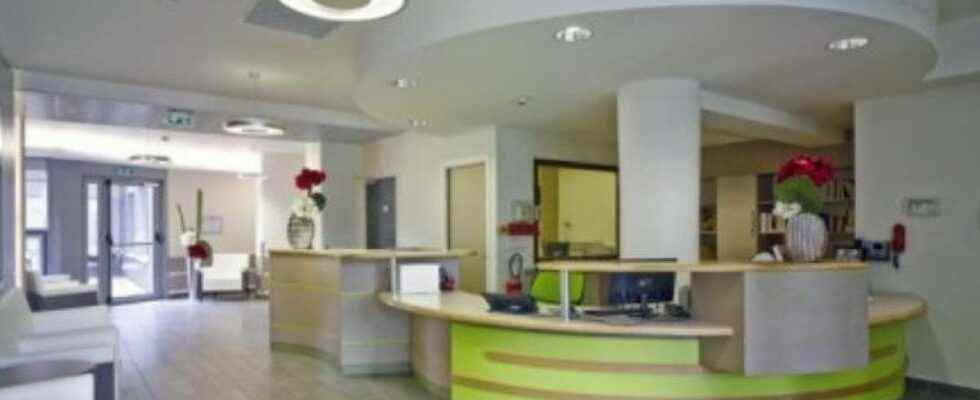(AOF) – Orpéa unveiled its preliminary results for the first half of 2022 this morning. The Ebitdar margin stands at 18.5% against 24.9% in the first half of 2021. The manager of Ehpad is penalized by the reduction of mechanisms compensation relating to Covid-19, by a significant amount of products specific to 2021 not renewed, by an inflationary context on purchases (notably energy), but also by a more active recruitment policy. The group expects a drop in profitability over the whole of the 2022 financial year.
Turnover, on the other hand, increased by 10.9% to 2.295 billion euros. “The activity of the first half and the summer months remains supported by the pace of opening of new beds and a gradual improvement in the level of activity”, underlined the group.
The average occupancy rate since the start of the 2022 financial year remains higher than the average level observed over the same period in 2021. This trend is confirmed in the months of July-August. As a result, Orpéa confirms its confidence in its ability to maintain a solid momentum of revenue growth in the 2022 financial year.
The company considers that the decline in the financial performance of the activities observed in the first half of 2022 compared to the first half of 2021 will extend into the second half and could, if necessary, be amplified by the additional volatility observed recently on the energy markets.
In this context, and depending on the recovery in the occupancy rate, the Ebitdar margin rate for the second half of 2022 could then be lower than the level of the first half of 2022.
AOF – LEARN MORE
Key points
– European number 1 in comprehensive dependency care with more than 120,000 beds and nearly 2,000 establishments in 23 countries, created in 1989;
– Turnover of €4.3 billion, split between France-Benelux for 60%, Central Europe for 26%, Eastern Europe for 9%, the Iberian Peninsula and Latin America ( Brazil, Chile and Uruguay) for 5% then China;
– Value creation model based on an organization adapted to international development in locations with high purchasing power, 50% ownership of real estate (46% in 2021, for a value of 8.2 billion €);
– Split capital (14.5% for the Canadian pension fund CPPIB and 5% for FFP of the Peugeot family), and governance renewed in July: Guillaume Pépy chairing the board of 14 directors, Laurent Guillot being retained as managing director;
– Tight balance sheet, the group having signed a loan agreement accompanied by a program of disposals of real estate assets of €1 billion by the end of 2023, and €2 billion by 2025.
Challenges
– Development of the 4-point transformation plan: quality of support and resident well-being, strengthening dialogue with stakeholders, ambitious human resources policy and renewed managerial practices;
– Strategy of innovation and anticipation of the management of human frailty: Open innovation with 108 projects around health & care, catering & hospitality, construction and processes, university research with nearly 30 projects innovative;
– 2023 environmental roadmap: 100% of calls for tenders including a CSR assessment, 100% of suppliers signatories of the responsible purchasing charter, 100% of new buildings certified HQE, launch of a green loan;
– Growth reservoir provided by the 26,000 beds under construction (3,000 beds open in 2022).
Challenges
– Preliminary results of the two independent firms on the group’s practices: discounts granted, including by suppliers of products financed from public funds, erroneous declarations of employment accounts, non-compliance in the contractualization of fixed-term contracts and use of intermediaries, including to a former prefect, organization of a situation of understaffing but absence of situations of shortages or rationing with regard to residents;
– Lack of financial visibility, the CNSA (Caisse de solidarité autonomie) and the group discussing the extent of unduly received funding;
– After a 14.4% increase in revenues on 1
er
semester, 2022 expectations confirmed: continuation of the revenue growth momentum posted in 1
er
quarter but exceptional charges linked to the crisis of confidence in the group’s practices and operating margin, already down to 1.5% in 2021, affected by inflation in energy and salary costs.
An inevitable race for new blockbusters
The patent for Merck’s star product, the cancer drug Keytruda, which accounts for more than 35% of its sales, expires in 2028. Despite the loss, since 2019, of the patents for its three star products (Avastin, Herceptine, Rituxan) Roche was able to renew its portfolio by bringing new molecules to market. However, the discovery and launch of new drugs are increasingly expensive. AstraZeneca spends about $6 billion a year on R&D in a pharmaceutical industry where the life of a patent only lasts ten to fifteen years. This leads laboratories to withdraw from certain activities. Thus J&J, Pfizer, GSK and, no doubt, Novartis soon prefer to refocus on specialty drugs and abandon any ancillary activity.
